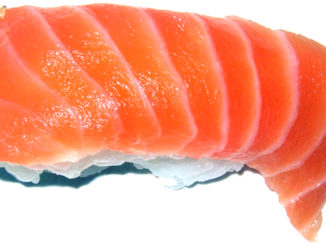
There are so many unproven bodybuilding myths that are still around us.
Would you believe me if I said you are being scammed out of 90% of the muscle growth you should be getting because you have been mislead and misinformed by one or all of these deadly bodybuilding myths.
Here are the first three of six bodybuilding myths that must be dispelled!
Bodybuilding Myth #1
Train like a bodybuilder to become a bodybuilder!
This is the message screamed by the bodybuilding world. While this mantra may have inspired millions via popular bodybuilding magazines, it has also mislead millions by re-printing and rehashing irresponsible training nonsense that will wreak havoc on your body and make you just another one of the herd.
Imitating the training of the ‘champion’ bodybuilder is one of the most costly frauds in the exercise world because the ‘instruction’ from elite bodybuilders has no practical relevance for average people like you and me who are without gifted genetic potential and are drug-free.
The traditional 5-7 day splits, 5 exercises per muscle, 24 set chest routine is training suicide for the average trainee not spending a couple thousand dollars a week on special ‘vitamins’.
Not only are these magazines useless but they will cause injuries, over-training, and illness. The books and magazines will not tell you that the drugs and genetics were responsible for curing their problem of being a hard gainer. Supplements, ‘better training’, and more dedication are their ‘secrets’ so you are told.
Bodybuilding Myth #2
Train for the ‘holy’ pump.
The ‘muscle pump’ is described as putting your muscles under an extended period of constant tension. As your muscles stretch and contract they become gorged with blood which makes them feel tighter and fuller.
Getting a muscle pump is not necessarily what causes the muscle to grow – doing 100 reps with a light rep will create a huge pump – but does this make a muscle grow? Of course not! Distance runners get a pump in their legs when they sprint uphill. Do they get big muscles? Heck no!
Most bodybuilders swear by the ‘pump’ and preach that you are shuttling more nutrients into the muscle – but is that what is really happening? Sure it feels great, like Arnold says in the unforgettable scene in Pumping Iron, but all that is occurring is a ‘back-up’ of blood. The blood is ‘stuck’ inside the muscle, which creates that worshiped tight and full look.
The blood that’s backed up into the muscle has hit a dead end and has nowhere to go. If you had fresh new blood that would be great, but unfortunately you just have old, stale blood getting ready for a snooze. That will not help you gain weight or build muscle mass!
The pump that is built up by the blood in your muscles will usually occur after you repeat set after set, which results in the famous “burning” sensation known as lactic acid. Lactic acid forms in the absence of oxygen. Lactic acid is a WASTE product and does nothing to build muscle weight.
Now if you are lifting extremely heavy weights and achieving a pump then this is a very good indication that you are making the muscle fibers work fully. I would only use the pump as an indicator to reveal how well you are ‘targeting’ the working muscle. Not as you guide to mark your success.
Bodybuilding Myth #3
You MUST train until failure!
Training to ‘failure’ has probably received more debate, misinterpretation, and improper logic resulting in too much wasted effort.
Going to failure– going to the point in a set where you are physically incapable of going just one more rep, hence you ‘fail’ – is preached as the most promised way to make continuous muscle gains. Interestingly, there is no activity outside the gym that demonstrates this ‘going to failure’ principle is as critical as bodybuilders have employed.
Growing up as a long distance runner I often stood by and watched the sprinters compete, and was astonished by their tremendous quadriceps and hamstring muscle. Yet I never remember watching any sprinter on my team train until failure, nor do I recall them ever sprinting through the finish line and collapsing.
Yet they demonstrated a greater amount of muscular work in less time each time they practiced and raced.
Also, I will never forget the phenomenal muscularity of the construction workers I used to work with when I laid bricks and framed houses.
Yet I never recall them carrying timber around the yard until they could not pick up one more 2 x 4. Nor do I remember the bricklayers moving the bricks around until they could not move them anymore.
Both of these groups had incredible muscularity and were able to stimulate muscle growth without going to failure. So why do so many command that ‘failure’ is an absolute law for stimulating muscle growth when much evidence shows otherwise?
Improving your body’s sensitivity to the cold does not require you to go outside in the middle of winter with no clothes on prior to passing out.
If you want to improve your tan, it isn’t necessary to subject your skin to the sun prior to the moment of blistering. If you want to improve your ability to hold your breath under water, do you need to go to the point just prior to losing consciousness?
Since your body’s primary function in life is to survive it will adapt only to the point where your body has sufficient defense to whatever element it is exposed.
Similarly, when lifting weights your body will adapt to the intensity you have exposed it to over time while maintaining your recovery resources. As you can see, muscle growth stimulation operates on the same principle and does not require over killing your muscles’ absolute limit.
Bodybuilding Myth #4
Low reps are for size and high reps are for cutting.
Your muscles do not have much personality – they are either growing, shrinking or staying the same.
If you want your muscle to grow then gradually force your muscles to do more work and outperform your last workout’s performance. If you are content with the size of your muscles right now then this is easy – just keep doing what you are doing. And to make the muscle smaller, this is even easier – simply do not train it.
You can not pick certain exercises to get a muscle ‘cut’ or make a muscle ‘huge’ – this theory holds no water. Muscle ‘cuts’ are a reflection of two criteria on the body: pure muscle size and low levels of body fat (in the single digits). So if you want to build massive muscles get ready to apply the fundamental principle of progressive overload. And if you wish to get ‘cut’ and ‘ripped’ be prepared to drop your body fat levels into the single digits.
Next time you hear someone say, “I just lift light weights to get toned,” then pat them on the back and point them in the direction of the cardio room as a better option. Light weights do not build muscle, period.
They will burn calories and that’s all. You’re better off maximizing your time by burning calories running or doing jumping jacks. And if you see someone with the goal to get bigger and they are a cardio junkie – grab their hand and lead them to the heavy weights.
Bodybuilding Myth #5
Monday is chest day, Tuesday is Leg day, Wednesday is Back day…
Splitting up a routine is preached like ‘gospel’ and is rarely on trial or questioned as the way to structure a muscle building routine.
And sure, splitting up a routine is fine and has some benefits BUT it is also the fastest way to over-train and burn out. Remember that you do not get stronger in the gym – you get stronger and bigger when you go home, rest, sleep, eat and FULLY recover.
To SUPERCOMPENSATE from your previous workout your muscles are not the only things that must experience a full recovery. Do not neglect the fact that you are taxing and depleting your central nervous system, hormonal system, and immune system – systems that, in fact, take longer than your muscles to recover.
Just because your muscles say, “OK we feel fine, let’s train again,” you must still experience a FULL recovery prior to attempting to stimulate your muscles again for more muscle growth.
Consider this practical example. What is the best way to cure a sickness? By taking an entire bottle of aspirin in one sitting? Or taking smaller dosages at more frequent intervals? I hope you agreed with the second solution. So what is the best way to build muscle? Taking one huge dosage per muscle group per week? Or taking smaller and more frequent dosages on a muscle group?
Bodybuilding Myth #6
Shock’ your muscle and keep them ‘guessing.’
This has got to be one of the silliest and most misleading statements ever made (no hard feelings because in theory it can be convincing). Interestingly, the people who used to give me this advice must have been ‘shocking’ or ‘tricking’ their muscles the wrong way because they had no muscle mass on their bodies to back up that statement.
If you think about this myth long enough you might start to laugh. Do you think you can really change your exercises and training routine to ‘surprise’ your body and get a different reaction out of them?
Your muscles do not have outside eyes that reward you with new muscle growth if you ‘confuse’ them. Your muscles understand MOVEMENT and that’s all – push, pull, curl, extend, contract or release – that’s it.
You can be lifting bags of sand or dead lifting 400 pounds and the action on your back is the same – your knees bend and your trunk flexes. So where is the shock? Why would your back muscles say, “Holy Macaroni Batman, you’re lifting with an Olympic bar and not sand bags anymore. Better pack on some muscle.”
Or maybe you can switch up the order of your routine by hitting a weak body part twice in the week. If you only train your arms once in the week and then ‘strategically’ throw arms in twice one week they will be ‘confused’ and ‘shocked’ into growing. Please! Your muscles operate on laws of science, not on laws of trickery.
Forget trying to shock, confuse, trick or ‘keep the muscle guessing.’ The only thing that will be shocked and confused is the person messing around with this theory who has no clue why their body has not changed in a month since they started this magic show.




Be the first to comment